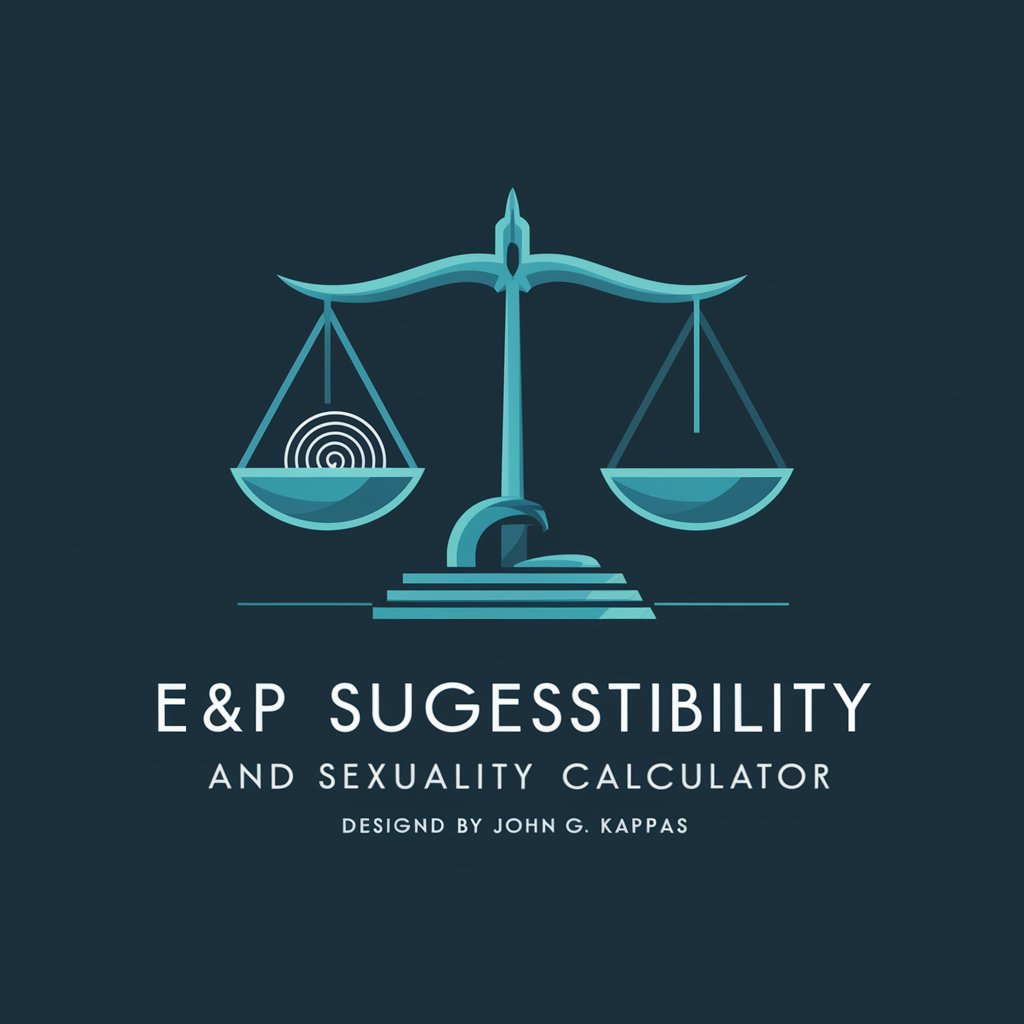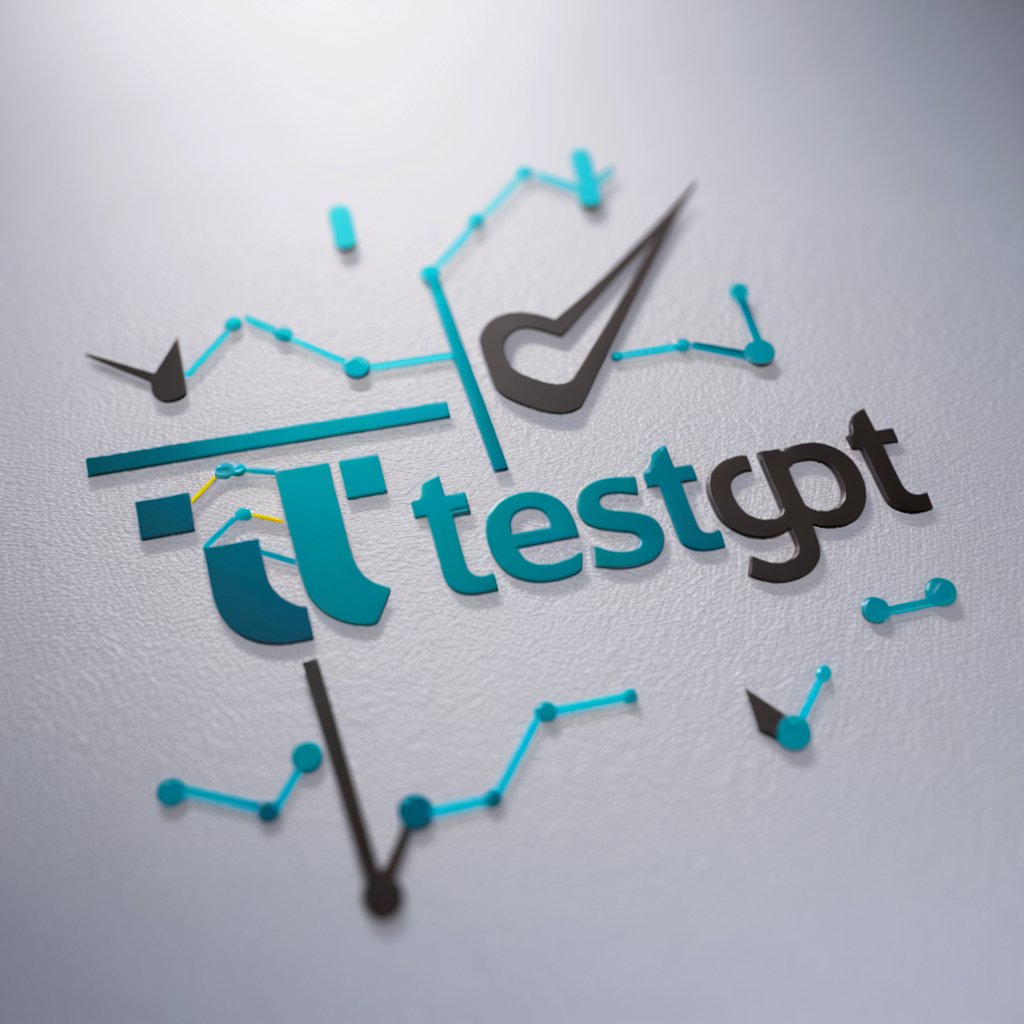4 GPTs for Psychological Assessment Powered by AI for Free of 2026
AI GPTs for Psychological Assessment are advanced tools designed to leverage the capabilities of Generative Pre-trained Transformers (GPTs) in the field of psychology. These tools are engineered to perform a wide range of tasks relevant to psychological evaluation, such as administering psychological tests, interpreting responses, and providing insights based on psychological theories and models. Their relevance lies in their ability to offer personalized, accessible, and efficient solutions for mental health assessment, therapy planning, and psychological research, thus playing a pivotal role in bridging the gap between AI technology and psychological services.
Top 4 GPTs for Psychological Assessment are: Psychology Database,E&P Suggestibility and Sexuality Calculator,InsanityTest,TestGPT
Psychology Database
Empowering Minds with AI-Driven Psychology Insights

E&P Suggestibility and Sexuality Calculator
Unveil Deeper Insights with AI

InsanityTest
Explore Your Unconventional Thinking

TestGPT
Empowering Assessment with AI

Unique Capabilities of AI GPTs in Psychological Assessment
AI GPTs tools in Psychological Assessment are distinguished by their adaptability and range of functionalities, from simple questionnaire administration to complex diagnostic interpretations. Key features include advanced natural language processing for understanding and generating human-like text, learning capabilities to adapt to new information, technical support for integrating with existing platforms, and web searching for accessing the latest psychological research. Additionally, some tools may offer image creation for therapeutic use or data analysis features for research purposes, highlighting their versatility in the psychological assessment domain.
Who Benefits from Psychological Assessment AI Tools
These AI GPTs tools cater to a diverse audience, including psychology students, researchers, clinicians, and even individuals with no technical background interested in self-assessment. They offer user-friendly interfaces for novices, while also providing robust customization options for developers and professionals in psychology. This accessibility ensures that a wide range of users can leverage these tools for educational, diagnostic, and therapeutic purposes.
Try Our other AI GPTs tools for Free
ESL Education
Discover AI GPTs for ESL Education: Tailored, interactive tools revolutionizing English learning with personalized experiences, cultural insights, and adaptable learning paths.
Ethical Living
Explore AI GPTs for Ethical Living: innovative tools empowering sustainable and ethical decisions. Tailored for everyone, from beginners to experts, they redefine how we engage with ethical practices.
Buddhist Philosophy
Discover AI GPTs for Buddhist Philosophy: innovative tools transforming the study and practice of Buddhism through tailored, AI-powered insights and interpretations.
Technological Innovation
Explore AI GPTs for Technological Innovation: versatile AI tools designed to enhance creativity and problem-solving in technology with user-friendly interfaces and advanced capabilities.
Futuristic Concept Development
Discover AI GPTs for Futuristic Concept Development: innovative tools designed for forward-thinking concept generation and analysis, tailored for professionals and novices alike.
Design Visualization
Revolutionize your design process with AI GPT tools for Design Visualization - harnessing the power of AI for creative, efficient, and tailored design solutions.
Expanding Horizons with AI in Psychology
AI GPTs are revolutionizing the field of psychological assessment by providing customized solutions that cater to various sectors, including clinical psychology, educational psychology, and research. These tools offer user-friendly interfaces that make advanced psychological assessments accessible to a broader audience. Furthermore, their integration capabilities with existing systems or workflows enable seamless operations, enhancing the overall efficiency and effectiveness of psychological services.
Frequently Asked Questions
What exactly are AI GPTs for Psychological Assessment?
AI GPTs for Psychological Assessment are specialized AI tools that apply the technology of Generative Pre-trained Transformers to perform tasks related to psychological evaluations, such as administering tests, analyzing responses, and providing insights based on psychological data.
How can these tools be used in therapy?
These tools can be used in therapy to assist therapists in diagnosing mental health conditions, planning treatment, and even providing therapeutic interventions through guided conversations or therapeutic storytelling.
Are these tools accessible to those without a background in AI or coding?
Yes, these tools are designed to be accessible to individuals without a background in AI or coding, offering user-friendly interfaces and guidance for conducting psychological assessments.
Can AI GPTs tools be customized for specific research needs?
Absolutely. Developers and researchers can customize these tools to suit specific study requirements, whether it involves modifying existing psychological tests or creating new assessment methods.
How do these tools maintain confidentiality and ethical standards?
AI GPTs for Psychological Assessment are developed with strict adherence to confidentiality and ethical standards, incorporating security measures to protect personal data and ensuring that their use complies with ethical guidelines in psychology.
Can these AI tools replace human psychologists?
While these AI tools provide valuable support in psychological assessment and therapy planning, they are not designed to replace human psychologists. Instead, they serve as aids to enhance the efficiency and accuracy of psychological services.
What is the accuracy of these AI-powered psychological assessments?
The accuracy of AI-powered psychological assessments can be high, especially when the tools are well-designed and properly trained on diverse datasets. However, the accuracy can vary depending on the complexity of the task and the specific tool used.
Are there any limitations to using AI GPTs in psychological assessment?
Limitations include potential biases in AI training data, the need for continuous updates to incorporate the latest psychological research, and the importance of human oversight to interpret and apply AI-generated insights appropriately.